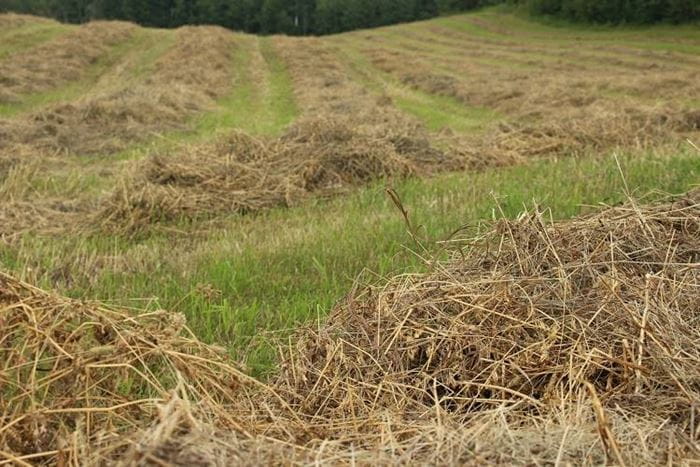Released on June 29, 2017
Despite the cool and dry conditions experienced so far, the majority of crops are in good to excellent condition, according to Saskatchewan Agriculture’s Weekly Crop Report.
Sixty-five per cent of winter wheat, 54 per cent of fall rye, 70 per cent of spring wheat, 49 per cent of durum, 68 per cent of oats, 64 per cent of barley, 60 per cent of canola, 50 per cent of flax, 63 per cent of lentils, 61 per cent of soybeans, 65 per cent of peas, 34 per cent of chickpeas and 26 per cent of mustard are in good to excellent condition. Approximately 87 per cent of fall cereals, 62 per cent of spring cereals, 55 per cent of oilseed crops and 67 per cent of pulses are at or ahead of their normal stage of development for this time of year.
Precipitation across the province varied widely last week, ranging from negligible amounts to 57 mm in the Nipawin area. Provincially, topsoil moisture on cropland is rated as six per cent surplus, 61 per cent adequate, 28 per cent short and five per cent very short. Topsoil moisture on hay land and pasture is rated as five per cent surplus, 53 per cent adequate, 32 per cent short and 10 per cent very short. Many areas, particularly in the south, are in need of rain to help crops, hay and pasture grow.
There were reports of frost in some areas of the south, and producers are assessing the damage.
Haying is underway. Four per cent of the hay crop is cut and two per cent is baled or ensiled. Haying is furthest advanced in the southwest where 11 per cent of the crop has been cut. Hay quality is rated as six per cent excellent, 50 per cent good, 34 per cent fair and 10 per cent poor. Quality is lowest in the southeast where 21 per cent of the hay is rated as poor, thanks to less-than-ideal growing conditions during most of the spring.
Crop damage this week has been attributed to flooding, frost, wind and insects such as cutworms and alfalfa weevils. There are also reports of gopher damage to crops. Producers have nearly finished herbicide applications, but progress has been slowed by windy conditions.
Producers are scouting for disease, applying fungicides and cutting hay.
SaskPower has received 29 reports of farm equipment coming in contact with power lines so far in June. There have been 168 incidents in 2017.
A complete, version of the Crop Report is available online at http://www.publications.gov.sk.ca/redirect.cfm?p=86132&i=99715.
Follow the 2017 Crop Report on Twitter at @SKAgriculture.
-30-
For more information, contact:
Shannon Friesen
Agriculture
Moose Jaw
Phone: 306-694-3592
Email: shannon.friesen@gov.sk.ca

